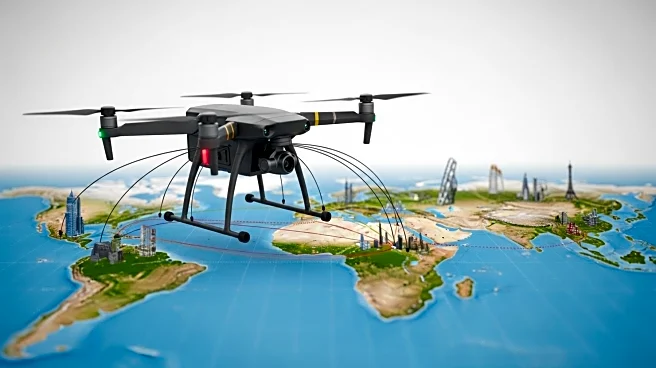What is the story about?
What's Happening?
The U.S. courier and local delivery service market has seen consistent growth, increasing by approximately 3.4% annually since 2020, reaching nearly $180 billion in 2025. This growth is driven by the rising demand for online orders and local delivery services. Aspiring business owners are encouraged to consider starting a courier business, focusing on customer service and logistics. The guide outlines steps for launching a courier business, including market research, business planning, and pricing strategies. Various types of courier businesses are highlighted, such as local, express, standard, international, B2B, and specialized couriers. The guide emphasizes the importance of selecting a niche, structuring the business, estimating startup costs, acquiring delivery vehicles, setting service prices, building a website, and marketing to find new clients.
Why It's Important?
The expansion of the courier industry presents significant opportunities for new businesses to enter the market, especially with specialized offerings or local expertise. As major players like UPS, FedEx, and DHL dominate the global market, smaller businesses can carve out niches by providing unique services or focusing on specific geographic areas. The growth of the courier industry is crucial for supporting the e-commerce sector, which relies heavily on efficient delivery services. Entrepreneurs can benefit from this trend by establishing businesses that cater to specific needs, such as same-day delivery or specialized services like medical supply delivery. This expansion can lead to job creation and economic growth in local communities.
What's Next?
New entrants in the courier business will need to focus on differentiating themselves from established companies by offering specialized services or leveraging local knowledge. As the market continues to grow, businesses must adapt to changing consumer demands and technological advancements, such as route optimization and real-time tracking software. Entrepreneurs should also consider sustainable practices, such as using eco-friendly vehicles, to appeal to environmentally conscious consumers. The competitive landscape may require businesses to continuously innovate and refine their services to maintain a competitive edge.
Beyond the Headlines
The courier industry is not only about logistics but also involves navigating regulatory requirements, such as obtaining necessary licenses and permits. Businesses must also consider the ethical implications of their operations, such as ensuring fair labor practices and minimizing environmental impact. The rise of e-commerce and courier services reflects broader shifts in consumer behavior, with increasing expectations for fast and reliable delivery. This trend may influence urban planning and infrastructure development, as cities adapt to accommodate the growing demand for delivery services.















